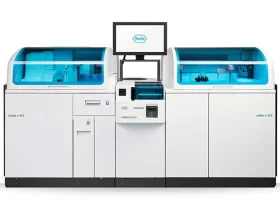Big data analytics has been revolutionizing the world for decades. It has been helping several industries, including banking and securities, education, transportation, and manufacturing in multiple ways such as predicting the sales and ordering the exact number of stocks required to fulfill demand. One industry that has also reaped the benefits of using big data analytics for organizational functionalities is the pharma industry.
Pharma Research & Development (R&D), in today’s world, owes much of its success to big data analytics. The pharma industry was dependent on traditional methods like lab experiments, animal studies, and clinical trials with smaller sample sizes for research and development efforts and to generate revenue.
However, with new challenges such as rising costs and slower drug development timelines, organizations have turned to big data analytics. Using big data analytics, they can streamline their R&D processes and bring innovative drugs to market more quickly and efficiently. Thus, big data analytics in healthcare has become a focal point for industries involving pharma R&D.
Big data in healthcare has solved several problems, such as the patent cliff and the complexity involved in developing a new drug. Moreover, a large chunk of unstructured and unquantified data gets produced from multiple systems while developing a drug. The recent advances in computing technologies, networks, and storage have led pharma companies to use big data to strengthen their businesses in the present context.
As a result, big data analytics in healthcare plays an important role because it gathers non-clinical, clinical, chemical, and biological data to analyze things that can be used to produce better and more effective results.
How Big Data Analytics Impacts Preclinical Trials
The positive impact of big data in healthcare was apparent during the COVID-19 pandemic. Big data analytics accelerated vaccine development by collecting and analyzing data from clinical trials, electronic health records, and real-world evidence. By leveraging these insights, scientists were able to rapidly develop and test vaccines, reducing the timeline from years to months.
Big data analytics in the pharmaceutical industry have eliminated the iterative process of manually testing multiple compounds for vaccine production. With the help of data analytics, pharma R&D can make use of predictive modeling which allows researchers to predict drug toxicity, interactions, and inhibition. This speeds up the entire process of preclinical trials, helping the pharmaceutical industry to save a lot of time, energy, and money.
The Role of Big Data Analytics in Clinical Trials
Clinical trials are among the most important stages of all in the development of any drug or vaccine. These trials decide whether a specific drug is effective and safe for the intended subjects. These processes usually consume time and cost a small fortune as they require pharma companies to recruit the right subjects.
Big data analytics uses data such as personality traits, genetic information, and disease status to make the process of finding the right subjects easier. Utilization of such analytics in clinical trials allows pharma companies to enhance the success rate of the drug. It also enables companies to develop personalized medicine.
Big Data Analytics in Pharma R&D
One of the biggest advantages of big data analytics in the pharma R&D industry is that it can generate informative analytics based on real-time data sources. Since large volumes of data are generated at different stages of developing a drug, companies can rely on big data analytics to gain useful insights from the data collected. This data collected can also prove useful to the patients as it allows the pharma industry to be more flexible by improving the safety and efficacy of the drugs and treatments.
Without big data analytics, pharma companies would have to rely on the traditional, outdated R&D model, where the generations of different data are managed in silos. Moreover, dependency on this traditional model may lead to institutional and professional misalignment between stakeholders.
How Big Data Analytics Impact Sales and Marketing
Every industry in today’s world wants to make a profit and pharma R&D is no different. To succeed in the cut-throat world of marketing, industries are looking to bring big data analytics into the pharma industry.
Big data in pharma analyzes information from demographics, electronic medical records, social media, and other sources of data. It then helps industries come up with effective methods to run their sales and marketing operations. Big data analytics can support industries in making various decisions in their sales and marketing strategies, such as identifying target customers, optimizing pricing strategies, forecasting demand, and evaluating the effectiveness of marketing campaigns. By analyzing customer behavior and market trends, businesses can identify opportunities to improve customer engagement and increase sales.
Conclusion
It is no secret that the arrival of big data in healthcare has changed how the pharma industry works. Apart from saving a lot of money and time, big data analytics also helps the pharma industry to reshape operations, sales, and strategy on many fronts.
Pharma R&D companies that invest in big data analytics are more likely to thrive soon. Thus, developing a strategic plan to include big data analytics in the scheme of things will be extremely crucial for all healthcare companies moving forward.






